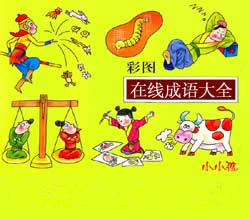英文读后感之鲁宾孙漂流记读后感
It seemed to be such a coincidence that the night after I finished reading The Life And Adventures Of Robinson Crusoe, I was to dine in a restaurant distinctly related to the book itself. This restaurant was no other than the famous American-styled “Friday’s.” The reason for mentioning this restaurant is quite straightforward to all the gentlemen, ladies and children who have read the novel and enjoyed it, which is the fact that this restaurant was, most likely, named after the American Native in Robinson Crusoe, called Friday. This restaurant offers very exceptional service, for instance when the waitresses are asked to order dishes they kneel rather than stand, which, unlike the other restaurants I have been to, makes it easier for the customers to hear them speak. Moreover, Friday’s friendly services to the customers help them to make better choices when ordering dishes. I remembered when I went to Friday’s last time; the waitress kindly described the items on the menu with precise details. It turned out that the combo I initially wanted was designed to be shared among a large group, not to be eaten by one person. I think this restaurant shows many commendable features similar to that of Friday.
Friday brought emotional warmth to the people around him with his appealing personality. I think it was this personality that affected Crusoe and made him say that he loved Friday when Crusoe didn’t express love for his parents, brothers, sisters, or even his wife. “When he espied me, he came running to me, laying himself down again upon the ground, with all the possible signs of an humble, thankful disposition, making many antic gestures to show it…to let me know how he would serve me as long as he lived.” This was what Friday did after Crusoe had rescued him from the two savages chasing him. It was easy for me to see why Crusoe had loved Friday. After sometime, Crusoe and Friday were to rescue Friday’s father. When Friday reunited with his father, the scene was easy to move anyone: “It would have moved anyone to tears to have seen how Friday kissed him, embraced him, hugged him, cried, laughed, halloed, jumped about, danced, sung; and then sung and jumped about again, like a distracted creature. It was a good while before I could make him speak to me.” This is my favourite chapter in the whole book. It is hard to see why Friday is an ex-savage when he can have personalities more praiseworthy than many civilized people, viz. Crusoe himself. “When he (Friday) went to him (Friday’s father), he would sit down by him, open his breast, and hold his father’s head close to his bosom, half an hour together, to nourish it; then he took his arms and ankles, which were numbed and stiff with the binding, and rubbed them with his hands.” Furthermore, Friday’s expression of loyalty in asking Crusoe to kill him rather than leave him is more heartfelt than anything Crusoe ever says or does.
Crusoe, on the absolute contrary, seems incapable of deep feelings, as shown by his account of leaving his family—he never shows any emotions. After a moving lecture from Robinson’s father about his future, he still decided to follow his own wandering ambition. Careless was he about the wishes of his parents to keep him alive and prosperous, as he was the only child left in the family. When he came back from the island which he had lived on for twenty eight years, he found that it had been too late to tell his parents that he was still alive, but yet again he did not feel sorry for them; he also did not feel sorry for the two people who had to live in misery for nearly thirty years under the allusion all of their sons were dead. He had the same feelings for his wife: when he was married, he said it was “not either to my disadvantage or dissatisfaction”, implying that it was also neither to his advantage nor his satisfaction. Moreover, after his wife died, Robinson did not think of looking after the three children they had, but went back to the island, which he had lived on for twenty-eight years. It was on this trip which Robinson Crusoe revisited “His Island” as he called it. I feel that Robinson’s indifference to his family is almost emotionally cruel.
共2页,当前第1页1 相关作文: 学溜冰、冬天的礼物、关于体检的作文、电脑的诱惑、记2012年的最后一天、给大家推介一本书、夏天真热、一堂有趣的科技课、可怕的天气、心爱的口琴热门作文成语素材
- 分我杯羹 羹:肉汁。楚、汉相争时,刘邦答项羽的话。比喻从别人那里分享一分利益。
- 风不鸣条 和风轻拂,树枝不发出声响。比喻社会安定。
- 阿鼻地狱 阿鼻:梵语的译音,意译为“无间”,即痛苦无有间断之意。常用来比喻黑暗的社会和严酷的牢狱。又比喻无法摆脱的极其痛苦的境地。
- 匪夷匪惠 夷:殷末周初的伯夷;惠:春秋时鲁国的柳下惠。既不是伯夷,又不是柳下惠;不具备这两位贤人的品德。形容才德不高而又驾驭的人。
- 拔宅上升 拔:拔起;宅:住宅。古代传说修道的人全家同升仙界。
- 把玩无厌 拿着赏玩,不觉厌倦。
- 飞沙走砾 沙:沙土;砾:小石块。沙土飞扬,小石块滚动。形容风势很猛。
- 诽誉在俗 诽:指诽谤;誉:赞扬;俗:风气、习惯。诽谤或赞扬在于当时的风习。后来引申指风气、习惯的作用非常大。
- 背盟败约 背:违背。盟、约:誓约。败:败坏。指撕毁。背叛誓言,撕毁盟约。
- 分毫不爽 比喻没有丝毫差错。
- 飞黄腾达 飞黄:传说中神马名;腾达:上升,引伸为发迹,宦途得意。形容骏马奔腾飞驰。比喻骤然得志,官职升得很快。
- 兵戎相见 兵戎:武器。以武力相见。指用战争解决问题。
- 擘肌分理 擘:分开;理:肌肤的纹理。比喻分析事理十分细致。
- 肥马轻裘 裘:皮衣。骑肥壮的马,穿轻暖的皮衣。形容阔绰。
- 不二法门 不二:指不是两极端;法门:佧行入道的门径。原为佛家语,意为直接入道,不可言传的法门。后比喻最好的或独一无二的方法。
